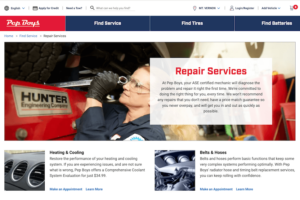Do you have the habit of looking at the temperature gauge on the dashboard of your car? If you do, then you are a rare person because most drivers don’t do that. It is only when the car is running hot but not overheating is when they give it some attention.
There are certain reasons why your car is running hot, and yet its engine is not overheating. Some of the most common reasons are damaged or clogged radiator, damaged thermostat or water pump, or low coolant level. Most commonly, this problem arises because of issues in the cooling system.
If the car thermostat is going up and down, and yet the engine does not overheat, it might be just a thermostat problem. The thermostat is your eye that will help you see what’s happening to your engine. Replace the thermostat. It is much cheaper to replace it than to replace the engine.
Read on to learn more about a car running hot but not overheating, the probable causes, and what you can do when this happens to your car.
Car Running Hot but Not Overheating
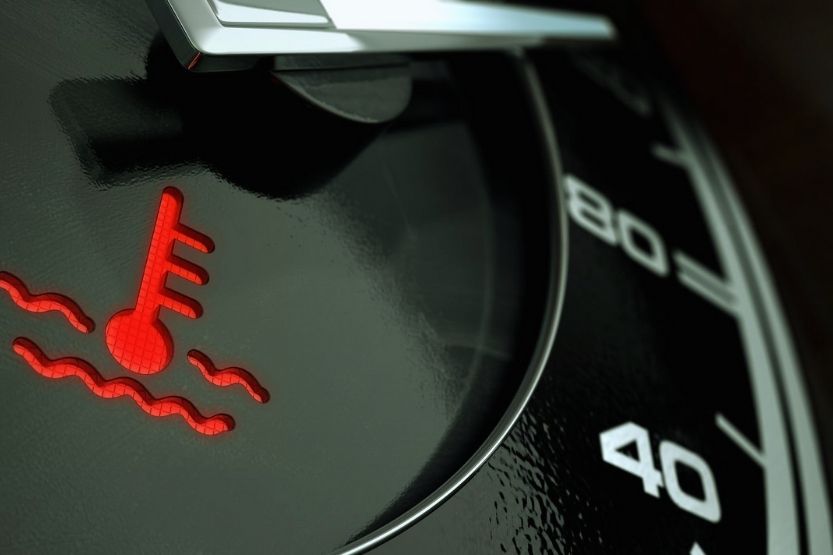
Some of the reasons your car is running hot and yet not overheating include the following:
- A clogged or damaged radiator,
- Low coolant level, and
- Ineffective thermostat or water pump.
Keep an Eye on Your Car’s Thermostat
That is why you need to keep an eye on your thermostat. It’s your window to the conditions of your engine. The temperature gauge was maybe going up or down. It may be malfunctioning. It’s much easier to replace a thermostat than to replace an engine.
Have the Cooling System Checked
However, if the temperature gauge continuously indicates a high temperature, you need to have the cooling system checked by a qualified mechanic. There are many reasons for the increasing temperature, and every suspicious cooling system component should be inspected.
The function of the cooling system, along with its many components, is to maintain the optimum temperature that the car engine needs so that it can operate at its maximum efficiency.
If one of its parts malfunctions, different cooling issues will arise. The worst-case scenario is the engine will overheat. It’s good that your engine does not overheat even if your car is running hot. Let’s hope the problem stays there. But in any case, you need to investigate further.
Why You Need to Pay Attention to the Cooling System
Modern Cars Don’t Have a Temperature Gauge
It is difficult to monitor a hot running engine because most modern cars no longer have a temperature gauge. You get a warning light on the instrument cluster occasionally if something goes wrong. But what if it’s too late and the engine is already damaged?
Check the Cooling System Regularly
So, you need to check the cooling system regularly. Check the coolant level, and check for leaks. You are doing this to see potential problems before they occur to prevent the problem from escalating.
Even if their cars have a temperature gauge, most drivers ignore them. They only notice it when their car engine is already overheating. Unfortunately, most cars today don’t have temperature gauges anymore.
A temperature gauge will show you if your car is running hot but not overheating. That is one of the values of a car’s temp gauge. But even if your car has a temp gauge, it may not give you the information you need.
Install a BlueTooth OBD2 Code Reader
Most of these gauges are designed to stay in the middle over a very wide range of temperatures. Suppose you want an easy and sure way to get accurate readings of your coolant temperature. In that case, you can consider installing a device that gives exact measurements of the temperature from the sensor.
An example of this device is the BlueTooth OBD2 code reader. It can read different values from every sensor in your car. That includes the coolant temperature sensor. This code reader is used in tandem with an app on your mobile.
Causes of Car Running Hot But Not Overheating
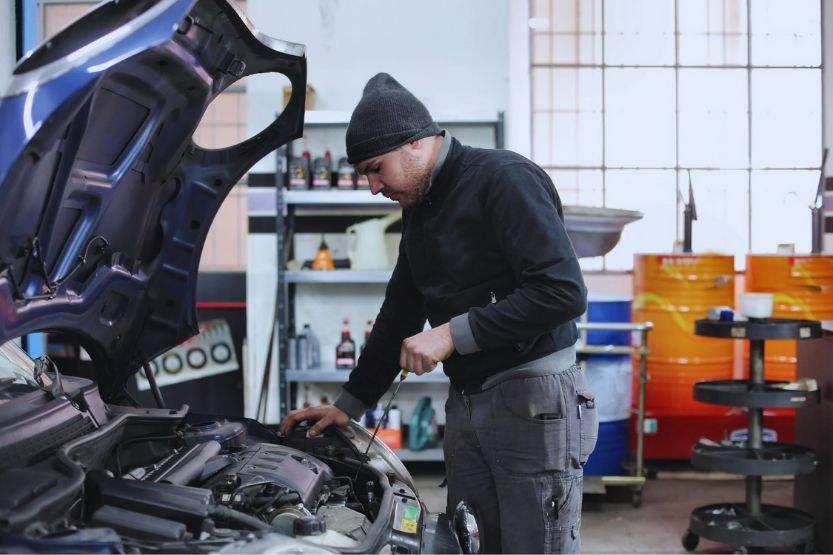
If you find that your car is running hot regularly, but it never really gets to the point of overheating, there could be an issue affecting the car’s cooling system.
Here are some of the probable causes:
1. Low Coolant Level
Coolant Has a Role in Maintaining Optimum Engine Working Temperature
The coolant plays an important role in maintaining the optimum engine working temperature because it is the one that removes the heat from the engine. If the coolant level is low, there is not enough coolant circulating the engine to keep it cool. Eventually, the engine will overheat.
Components of a Coolant
The coolant consists of anti-freeze and water. Anti-freeze is there to increase the boiling point of water. It is made of special chemicals that enhance the thermogenic properties of water. It prevents water from freezing in cold weather, aside from increasing its boiling point.
Amount of Coolant Your Car Needs Depends on Its Size
The amount or volume of engine coolant that your engine needs depends on its size. All car manufacturers recommend the correct amount of coolant for a car engine’s particular size and make. Always follow the recommendation of the maker of your car.
2. Broken Temperature Sensor
The general tendency of humans is to complicate simple problems. If your car is running hot, but the engine is not overheating, it could be that a broken temperature sensor only causes it. I’m saying that your car is experiencing this problem simply because of a broken temperature sensor.
Inaccurate Temperature Reading
If this sensor is malfunctioning or is completely damaged, it won’t give you the correct temperature reading. Sometimes, you can get it back to work by simply cleaning it. Otherwise, you have to replace it so the new sensor won’t give you a false reading.
3. Damaged Water Pump
If your car already has hundreds of thousands of miles in it, it will have some components asking to be replaced. These old parts will show signs of weaknesses before they finally give up the ghost.
Overworked Component of a Car’s Cooling System
The water pump is one of the most overworked components of a car’s cooling system. If it is already old and tired, it will not operate efficiently as before. When that happens, you will experience this running hot but not overheating problem.
Unfortunately, the location of the water pump in most engine bays is quite difficult to access. This is why water pumps are usually ignored during regular maintenance and are looked into only when causing problems.
Signs of a Failing Water Pump
But there is a way you can monitor the efficiency of the water pump before it conks out. There are signs before it fails that you should know. Here are some of the signs:
- Strange noises coming from the pump
- White chalky residue or dried coolant around the pump or at engine components nearby
- Noisy or loose water pump pulley
- Coolant leaking from the water pump seal or from its peep hole
Most coolant water pumps last as long as the car’s lifetime. But if you are regularly experiencing a car running hot without overheating, you are advised to replace the water pump – if you find it is the culprit.
4. Damaged Temperature Gauge
Stuck Needle Due to Grease
If your car has a temperature gauge, it might be the one at fault. It has parts that are prone to damage. For instance, needle is prone to breaking once it gets stuck in one place.
Have a Mechanic Replace the Needle
This needle could also get stuck in the grease coming from the gears inside the gauge. If you need to replace the needle, the best way is to take your car to the car mechanic. They will be the best to recommend if the needle should be replaced or the whole temperature gauge itself.
Again, the car running hot but not overheating – what causes this issue? Usually, there is a problem with the cooling system when a car is running hot but not overheating. Some cooling system issues include water pump failure, low coolant level or an ineffective coolant, damaged engine coolant thermostat, or a damaged auxiliary fan.
5. Old Coolant
If the coolant you are using is already old, it might be the cause of the problem. This is one of the most common causes of a car running hot but not overheating. Have you been driving your car for the last two years without replacing the coolant? If you do, that’s the cause.
Replace the Coolant Every Two Years
The recommendation is to replace the coolant every two years. As the coolant grows old, it loses its capacity to prevent corrosion on the engine’s internal parts.
If you don’t replace the coolant regularly, there will be a buildup of debris and gunk in the engine’s coolant passages. This will, in turn, restrict the flow of coolant around the engine. It will run hot as a result.
6. Bad Head Gasket
A broken head gasket can also cause an engine to run hot but not overheat. If this gasket is damaged, the seal at the engine oil passage and combustion chamber will not be secure. This gasket is the one that creates a seal between the cylinder head and the engine block. If you find that this seal gasket is damaged, have it replaced immediately by a qualified mechanic.
7. Damaged Cooling Fan
Increases the Amount of Cool Air from the Radiator
The cooling or auxiliary fan is also a critical part of your car’s cooling system. If it is malfunctioning, it will not be able to do its job efficiently. Its work is to increase the amount of cool air flowing from the radiator when the car is stationary or is not moving fast.
Replace If Damaged
In this way, the coldness of the radiator is maintained so that it can efficiently dissipate the heat coming from the hot coolant, even if the car is at a stop. If you find that there is damage to this fan, take your car to a qualified mechanic so they can replace it.
How to Cool Down a Car Engine Quickly
Diagnosing Car Running Hot But Not Overheating Without a Tool
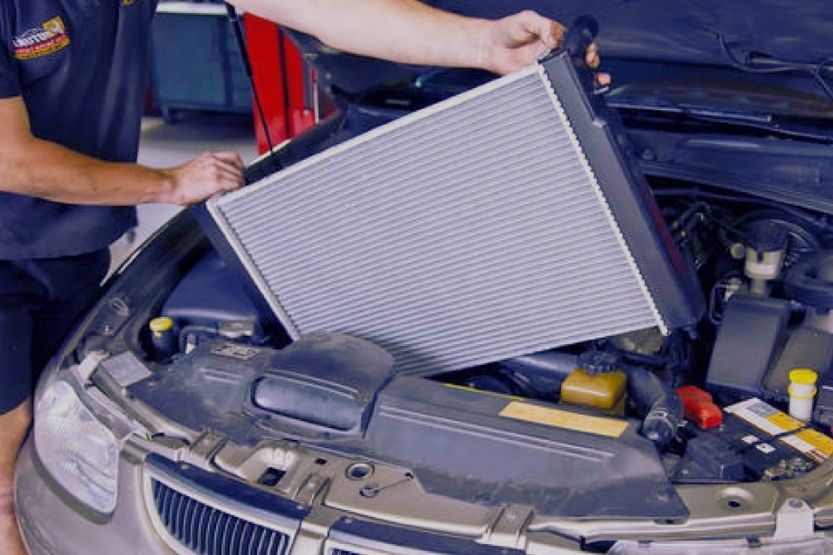
If you want to diagnose this problem correctly, you need to use an OBD-II diagnostic reader. This tool will enable you to check if there are bad sensors or electrical faults in your car. This instrument will also help you monitor engine temperature in real-time.
Usually, mechanics use this code reading device to take several readings from different temperature sensors attached to the engine. If you don’t have a code reader, you can still do some simple checks by following this procedure:
1. Check the Radiator
Check if there are leaks in the radiator or if it has some damage. Is there coolant leaking from the radiator? Are there any radiator fins that are damaged? It will be a good idea if you can perform a radiator flush as well. This will remove any dirt buildup inside the radiator.
2. Inspect the Hoses of the Cooling System
See if there are splits, cuts, or any damage on these hoses. Check the hose joints to see if they are tight and not loose or already shrunk or hard.
3. Inspect the Auxiliary Cooling Fan
Check the blades of the cooling fan for damages. See that it freely rotates. Most fans are just made of plastic, and they grow brittle with heat over time.
Perform a complete coolant flush. Drain the old coolant and replace it with a new coolant. This will remove all the blockages in the system, and the new coolant can function properly.
Conclusion: Car Running Hot but Not Overheating
There are some reasons why your car is running hot, but the engine does not overheat. The usual causes include a damaged thermostat or water pump, a damaged or clogged radiator, and insufficient coolant in the system.
If you notice, all of the causative factors involve different components of the car’s cooling system. In other words, this particular problem arises because a part of the cooling system is malfunctioning.
Related reading:

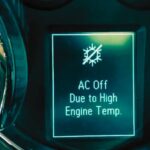





![Read more about the article Check Engine Light on After Oil Change [Causes and Solutions]](https://roadsumo.com/wp-content/uploads/2021/10/check-engine-light-on-after-oil-change-300x200.jpg)
![Read more about the article Car Won’t Turn Over but Has Power [Causes and How to Fix]](https://roadsumo.com/wp-content/uploads/2022/04/car-wont-turn-over-but-has-power-300x200.jpg)
